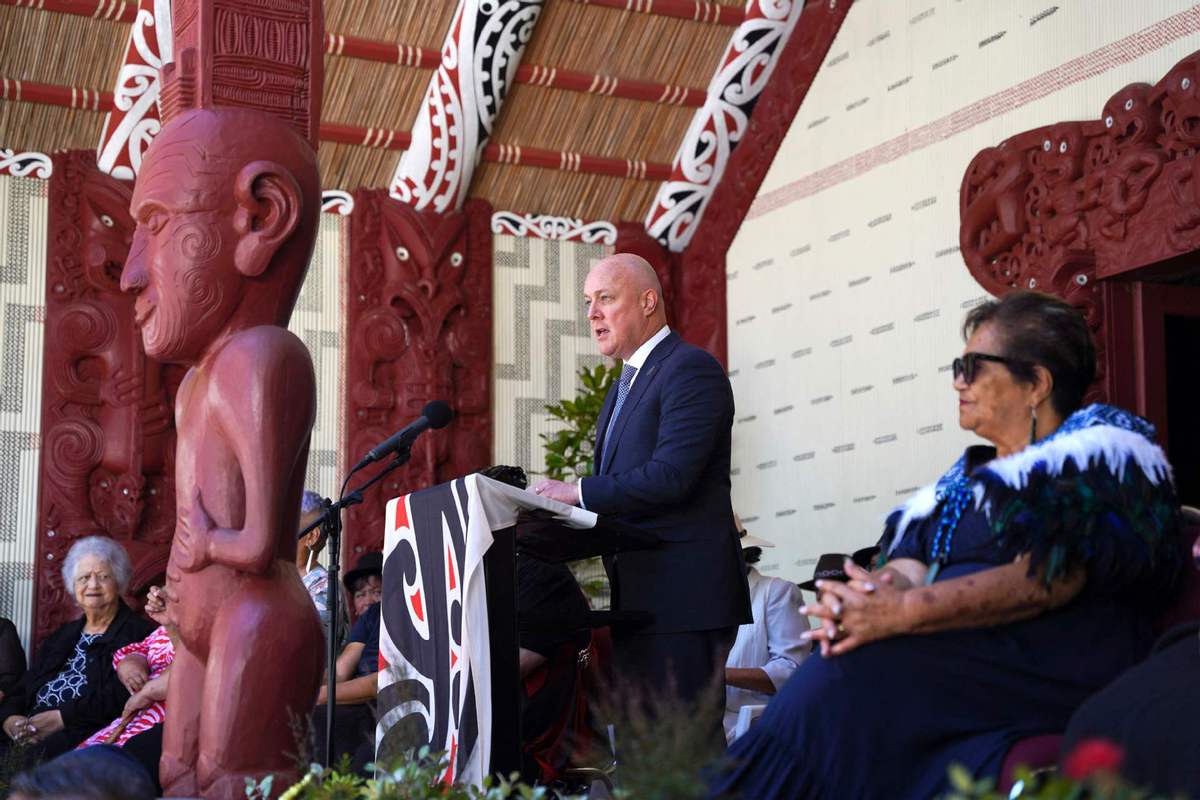Maoris fear for rights as NZ reviews treaty
By KARL WILSON in Sydney | China Daily Global | Updated: 2024-02-06 09:14

New Zealand has often been looked up to as a country where indigenous and nonindigenous people got along well. One of the reasons for that was the Treaty of Waitangi signed in 1840 between British colonists and 540 indigenous chiefs.
The foundation document signed in 1840 establishes and guides the relationship between New Zealand's government and its indigenous population. It was not perfect, but the treaty gave the Maori people a voice in determining their future and a degree of autonomy.
For 184 years, the treaty has stood the test of time.
All that is starting to change as the new three-party coalition government under Prime Minister Christopher Luxon plans to "review" the treaty.
The move by the government has angered New Zealand's Maori people and many non-Maori people alike, who see it as being "racist" and anti-Maori.
There have been widespread protests, which are expected to culminate on Tuesday when New Zealanders gather to celebrate Waitangi Day — the day the treaty was signed and known as the country's national day.
Politicians, Maori leaders and members of the public are set to start arriving in the seaside town in the north of the North Island.
Pita Tipene, chairman of the Waitangi National Trust board which organizes the event, said they expected upward of 60,000 people to attend Waitangi Day events.
New Zealand's center-right coalition, which took office late last year, is promising to undo policies of previous governments, particularly those promoting the official use of the Maori language and seeking to enhance indigenous living standards and rights.
The government has also said it will introduce, but is not committed to passing, a bill that would reinterpret the Treaty of Waitangi.
Step backward
Critics said the moves are the most significant step backward for Maori rights in decades, and some have taken legal action against the government in an effort to stop the policy changes.
Luxon has tried to soothe fears in recent weeks that the document will be reinterpreted or is under threat.
The document has three articles. In the English version, Maori ceded the sovereignty of New Zealand to Britain; Maori gave the Crown an exclusive right to buy lands they wished to sell, and, in return, are guaranteed full rights of ownership of their lands, forests, fisheries and other possessions; and Maori are given the rights and privileges of British subjects.
Now, it would appear that the government wants to rewrite the principles of the treaty.
Recently, Maori King Te Arikinui Tuheitia Paki held the first national hui — a meeting of Maori people — in a decade to discuss the government's agenda.
Part of the debate stems from the fact that there are two versions — one written in English and the other written in the language of the indigenous people.
"International law gives priority to the version signed by the indigenous people, but that is not something that the present government appears prepared to accept," Richard Shaw, professor of politics at Massey University, said.
Agencies via Xinhua contributed to this story.
























